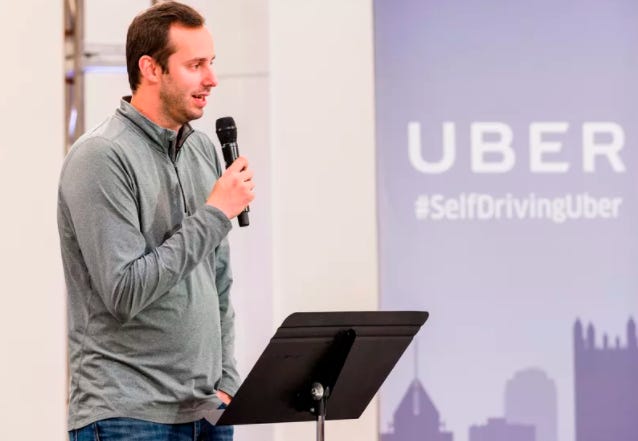Money Mules

There are many types of scams out there. I write about them every week! What I do not read about quite so often, however, is how the money gets from the victims to the perpetrators. I wrote about Hushpuppi, who spent much of his criminal career setting up bank accounts for criminal networks. I’ve written about iTunes gift cards and video games being used to launder funds. But, once the victim hands over the money, where does it go?
This week the New York Times has a piece on the money mules themselves, in many cases people who were duped into helping launder funds for criminals:
It turned out that Ms. Newton had become what is known in security circles as a money mule, an accomplice who, either knowingly or unknowingly, helps international criminal rings move their ill-gotten gains. In Ms. Newton’s case, swindlers appeared to be buying products in the United States with stolen money and then mailing them — using unwitting intermediaries like her to disguise their involvement — to overseas locations where the goods could be resold for cash.
Scammers will go to great lengths to appear legitimate to their marks, posting jobs on ZipRecruiter and maintaining professional-looking websites. Some are so brazen they’ve sent text messages to the head of the agency in charge of tracking them down:
Jamarle Worilds, the chief of the illicit finance unit of Homeland Security Investigations, a division of Immigration and Customs Enforcement, said many people who act as money mules “don’t actually understand that they are operating in the space.” He said he had recently received text messages offering him the opportunity to work from home, which he easily spotted as an effort to recruit him as a money mule.
“I’m not sure about how they got my information, but that’s what it’s come to,” he said.
Whoops! The reality is that finding lists of mobile phone numbers on the gray and dark web is extremely easy, so scammers feel emboldened to send unsolicited texts and emails to strangers, hoping people may be looking to make a quick buck.
I’ve written about the billions of dollars’ worth of unemployment fraud during the pandemic. Turns out those people were unwitting mules as well:
Over the last few months, Scattered Canary, a Nigerian criminal operation, submitted fraudulent claims for unemployment benefits in at least 14 states and then had the money delivered to accounts that they had set up, in the names of their victims, with Green Dot, a financial services company, according to the security firm Agari.
Scattered Canary then sent the money overseas through Green Dot’s online system, all before the person whose name was used was alerted to the new account, the security firm said.
It is deeply dispiriting that scammers have seized upon the coronavirus pandemic as an opportunity to cash in on human suffering, but the US economy is uniquely susceptible to this sort of crime. Our fractured unemployment system means state governments can’t easily verify claims. Our government’s decision to let tens of millions of people go jobless creates the desperation a scammer can prey upon. Our banking system’s lax oversight allows scammers to move their money out of the country before authorities take notice. It all sucks, and it’s not going to get better any time soon.
Facebook

I wrote, like, three friggin weeks ago about Facebook’s last scandal - Kenyan scammers using the platform to steal identities en masse in the country as the company did little to curtail fraud and political sabotage in Africa.
Well, it’s three weeks later and a blistering whistleblower essay from a former Facebook employee has thrown the company once again into turmoil. Buzzfeed News wrote it up, and it’s just as bad as you’d expect:
The 6,600-word memo, written by former Facebook data scientist Sophie Zhang, is filled with concrete examples of heads of government and political parties in Azerbaijan and Honduras using fake accounts or misrepresenting themselves to sway public opinion. In countries including India, Ukraine, Spain, Brazil, Bolivia, and Ecuador, she found evidence of coordinated campaigns of varying sizes to boost or hinder political candidates or outcomes, though she did not always conclude who was behind them.
Seems bad! What this account offers, more than past stories, is how much power Facebook employees wield on the platform, and how little Facebook’s leadership cares about the human suffering it causes around the world:
That power contrasted with what she said seemed to be a lack of desire from senior leadership to protect democratic processes in smaller countries. Facebook, Zhang said, prioritized regions including the US and Western Europe, and often only acted when she repeatedly pressed the issue publicly in comments on Workplace, the company’s internal, employee-only message board.
Imagine working at the world’s largest social media company and having to harass your bosses on the company message board to get them to take action against things like military coups in developing nations or attempts to steal elections. Incredible.
Zhang was put in an impossible situation - attempting to deal with dangerous behavior all over the world, and given scant resources to do so:
“I have made countless decisions in this vein – from Iraq to Indonesia, from Italy to El Salvador,” she wrote. “Individually, the impact was likely small in each case, but the world is a vast place.”
Still, she did not believe that the failures she observed during her two and a half years at the company were the result of bad intent by Facebook’s employees or leadership. It was a lack of resources, Zhang wrote, and the company’s tendency to focus on global activity that posed public relations risks, as opposed to electoral or civic harm.
“Facebook projects an image of strength and competence to the outside world that can lend itself to such theories, but the reality is that many of our actions are slapdash and haphazard accidents,” she wrote.
This jives with everything I’ve seen over years of reading and writing about Facebook. It’s one of the many reasons the company should not exist in its current state - it is quite obviously causing more harm than good in most countries around the world. Reading Zhang’s account reminds us that Facebook’s leadership does not grasp the scale of the problem they’ve created with their unchecked global expansion. Governments are the only hope we have at this point, and even Zuckerberg may see the writing on the wall.
Caroline Calloway

Last year, an influencer named Caroline Calloway was the subject of an exposé that exposed her as - mostly - a fraud. In what I’ll call a bold response to the piece, Calloway told her followers to read the article, admitted to her lies, and announced she was writing a book about it, called Scammer. An…unusual response, but I sort of respect it?Since January of this year, Scammer has been available for pre-order.
Australian blog Mamamia has documented Calloway’s rise to…infamy? And, also points out that the book still has not been released:
On August 7, Calloway posted an update to her website about her book.
"The book is now estimated to ship by August 31st…
[…]
On August 24, a person commented on her latest Instagram asking "Is there somewhere that I can read a blurb for Scammer?"
Calloway responded: "No. It's a gamble."
[…]
Now a few days into September, and Caroline Calloway has gone quiet. There is no update on when Scammer will - if ever - be released. She hasn't posted to social media for nearly two weeks.
I mean…if you are a fan of a person who scammed their way into Internet fame, and you pay money for their book - their second try at a book, since the first one never happened - aren’t you taking a bit of a risk you’ll get ripped off? It’s kind of her brand!
I do not follow any Instagram celebrities, and every time I read about them it reinforces my decision. Calloway sounds awful, but I’m really not sure what people expect at this point. Maybe stop giving her money!
What’s Anthony Levandowski Doing?

Eighteen months, it turns out:
Controversial engineer Anthony Levandowski, who worked for the Google division that would become Waymo before founding trucking company Otto and selling it to Uber, has been sentenced to 18 months in prison for trade secret theft during his various stints in the self-driving industry.
I wrote about him back in March, before the world fell apart, and my favorite part of his origin story was his epic fail while debuting his “self driving” motorcycle:
It didn’t do much: Because Levandowski forgot to turn on the stabilizing system, the motorcycle fell over a few feet from the starting line. Even for a race in which no vehicle went more than 7.4 miles, it was a particularly ignoble failure.
I love this mental image. The green flag waves, the other prototypes set off, all except the Levandowski-cycle, which lies on its side, tires spinning.
Anyhow, since you can’t keep a good grifter down, Levandowski is suing Uber for $4 billion dollars:
[…] Levandowski isn’t done in the legal department. He filed another lawsuit last month alleging Uber owes him money as part of its agreement to acquire Otto that it never paid, because the trade secret showdown with Waymo effectively killed the deal’s prospects and the financial rewards it would have given Levandowski.
He’s claiming he is broke now, which is hard to believe since he made over a hundred million dollars working at Google and Uber, but who knows. I have confidence he’ll find some new scheme to get him back into the upper echelons of Silicon Valley douchedom when he’s out of the clink.
Short Cons
ProPublica - “Alongside this political mission, Perry and his staff at the Energy Department worked to advance energy deals that were potentially worth billions of dollars to Perry’s friends and political donors”
Vanity Fair - “Kushner, seated at the head of the conference table, in a chair taller than all the others, was quick to strike a confrontational tone. “The federal government is not going to lead this response,” he announced. “It’s up to the states to figure out what they want to do.””
New Republic - “Bribing one politician is bad. Bribing all the politicians is worse. The U.S. Department of Justice is investigating a group of companies in Kurdistan, Iraq’s semi-independent northern region, that appears to be doing the latter”
Tips, thoughts, or oil pipeline contracts to scammerdarkly@gmail.com
